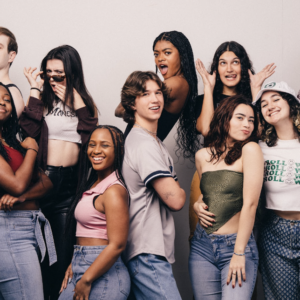“Roleplay” Returns to Tulane
January 25, 2023
Several times over the past few years, I have heard people mention a show called “Roleplay” that premiered at Tulane in 2019. A professor described it as striking. A friend hailed it as one of the best pieces of theater she had seen in New Orleans. A former cast member proclaimed it one of the most important activities she had participated in as a Tulane student.
From their comments, I gathered that the 2017 Sexual Misconduct Climate Survey inspired the show’s creation. The survey revealed that a staggering 41% of undergraduate women and 18% of undergraduate men had experienced some form of sexual assault on campus. Consistent with national trends, rates were even higher among LGBTQ+ students, with 51% of women and 44% of men reporting sexual assault.

Much has changed since the premiere of “Roleplay” in 2019. Norms related to consent, the language surrounding race and gender identities and the political landscape are different than they were four years ago. The results of the 2022 Climate Survey — still unpublished — will hopefully display that the sexual climate on campus has also changed for the better. The new cultural waters that we are swimming in necessitated an updated version of “Roleplay” with an entirely new cast, and this Saturday, such a show will open in the Lupin Theater.
While many of the original elements of “Roleplay” have changed, the core of the show — what it is like to be a Tulane student at this moment — remains. Tulane has partnered again with Goat in the Road Productions, a local performance ensemble, to recreate the show, but the cast of Tulane students primarily led the devising process. In this way, it intends to be as relevant and truthful in its portrayal of student life as possible.
“You’ll see people use the real language, the real curse words that people use,” producer Chris Kamenstein said. “You’ll see people simulate drug use on stage. You’ll see people in moments of intimacy. It’s a non-judgmental look at culture.”
This iteration of the show may as well be called “Replay.” Recounting several intertwining stories that span the length of a fall, winter and spring in 75 minutes, it is an explosion of life in a condensed form. Just like an action replay, it is false because it occurs outside the flow of real time, which is the very thing that allows it to reveal important, perhaps almost universal truths about college life. Adding to the metaphor is the fact that a documentary film about the original show is currently in post-production, its release date still undisclosed.
An earlier production in Tulane Theater’s 2022-2023 season, “Project Jane,” was also an ensemble-driven piece imagined as an agent of change that focused specifically on issues of reproductive rights and access in the wake of the Dobbs v. Jackson decision. Theatrically, the show was structured like a conversation with the audience, with a practically non-existent fourth wall and scenes that directly invited audience participation. But unlike the highly stylized and conversational “Project Jane,” “Roleplay” is intended first and foremost as a mirror up to nature.
“You hope that conversation happens in the wake of something if you’ve done it well,” Kamenstein said. “But our goal with the show is not to tell people, ‘How do you do this? Here are the steps.’ … It’s not about a prescriptive answer.”
Don’t fret — this is not some kind of Campus Health PSA, although it is true that you may emerge from the show with an increased awareness of the problems we currently face as a student body. Viewers should expect a story — lots of movement and lots of sound. One should also expect some laughter and even some discomfort. Often, it is only through witnessing what we know to be false that we can see what we know to be true and then heal.
“Roleplay” runs from Jan. 28 to Feb. 5, with performances at 7:30 p.m. Tickets are free and available for reservation here.






















Leave a Comment